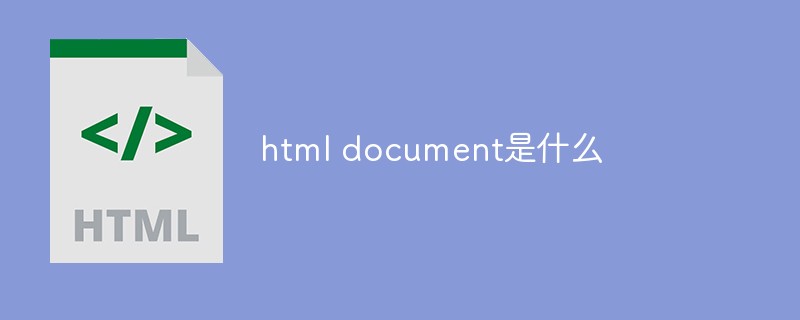 Web Front-end
Web Front-end CSS Tutorial
CSS Tutorial A brief discussion on the difference between id and name in HTML example code_Experience exchange
A brief discussion on the difference between id and name in HTML example code_Experience exchangeWe can analyze the subtle differences through a piece of code:
In IE browser, how many methods can we use to index this text box object? ? (For distinction, we set NAME and ID to different values)
1. oDemo
2. demoform.oDemo
3. document.all.oDemo
4. document.all. demoform.oDemo
5. document.forms[0].oDemo
6. document.forms['demoform'].oDemo
7. document.forms['demoform'].childNodes[0] 8. document.forms['demoform'].elements[0]
9. document.getElementById('oDemo2')
The above 9 indexing methods all passed the return value test in IE6. However, it is worth noting the last one: in IE6, I wrote the index object as
document.getElementById('oDemo'), and the browser can index the object correctly. It is really terrible fault tolerance! !
Then the problem comes. We put this code in Mozilla Firefox 1.0 and execute it again. Only the 7th method returns "undefined", and other methods can correctly
index the object. , however, because the third and fourth methods use the IE-specific object document.all, although FF1.0 returned the correct value, it issued a warning in the console
Warning: Unauthorized Standard properties document.all. Please use the W3C standard form document.getElementById() .
Next we define the HTML text type more strictly and add at the beginning of the source code:
Let the HTML text be parsed according to the HTML4.01 standard. In IE6, it still passes the return value test, but in IE6 Mozilla Firefox 1.0 is in big trouble. Methods 3 and 4
do not have any return value, but an error message is issued in the console: Error: document.all has no properties, and method 7 The method still returns "undefined
".
Summary
name was originally used for identification, but now according to the specification, it is recommended to use id to identify elements.
Only name can be used in the following:
1. The name of the control of the form, and the submitted data is controlled by the name of the control instead of the id. Because there are many names that correspond to multiple controls at the same time, such as
checkbox and radio, and the id must be unique in the entire document. In addition, the browser will set the request sent to the server based on the name. Therefore, if the id is used, the server cannot
get the data.
2. The names of frame and window are used to specify targets in other frames or windows.
Only ids can be used for the following:
1. The association between label and form control,
The for attribute specifies the id of the element associated with the label, which cannot be replaced by name.
2. The element selection mechanism of CSS uses #MyId to specify the element to which the style should be applied, and cannot be replaced by name.
3. Obtaining the object in the script:
IE supports directly referencing the object identified by the id (instead of name) in the script. For example, for the input above, if you want to get the input content in the script, you can get it directly with
MyInput.value.
If you use DOM, use document.getElementById("MyInput").value. If you want to use name, you usually get the form containing the control first, such as
document.forms[0], and then Then reference the name from the form. Note that the value obtained in this way is the value that will be sent to the server after calculation.
Other differences between name and id are:
ID must meet the requirements of identification, such as case sensitivity, and it is best not to include underscores (because it is not compatible with CSS). There are basically no requirements for name, you can even use numbers
.
Use CSS to control the stay style of this link.
You can write #m_blog div.opt a:hover{color:#D57813} or #myLink:hover{color:#D57813}
NAME is mainly used in interactive web pages. The form is submitted to a server-side script and receives variable processing volume. From the perspective of source code standardization and compatibility, if you want to index an object in a client
script, it is recommended to use the document.getElementById() method. Try not to use the NAME value directly. Of course, if not Considering compatibility, the above 9 methods can be run in IE (IE5.0 has not been tested).
附:测试源代码
HTML PUBLIC "-//W3C//DTD HTML 4.01 Transitional//EN" "http://www.w3.org/TR/html4/loose.dtd">
 HTML超文本标记语言--超在那里?(文档分析)Aug 02, 2022 pm 06:04 PM
HTML超文本标记语言--超在那里?(文档分析)Aug 02, 2022 pm 06:04 PM本篇文章带大家了解一下HTML(超文本标记语言),介绍一下HTML的本质,HTML文档的结构、HTML文档的基本标签和图像标签、列表、表格标签、媒体元素、表单,希望对大家有所帮助!
 html和css算编程语言吗Sep 21, 2022 pm 04:09 PM
html和css算编程语言吗Sep 21, 2022 pm 04:09 PM不算。html是一种用来告知浏览器如何组织页面的标记语言,而CSS是一种用来表现HTML或XML等文件样式的样式设计语言;html和css不具备很强的逻辑性和流程控制功能,缺乏灵活性,且html和css不能按照人类的设计对一件工作进行重复的循环,直至得到让人类满意的答案。
 web前端笔试题库之HTML篇Apr 21, 2022 am 11:56 AM
web前端笔试题库之HTML篇Apr 21, 2022 am 11:56 AM总结了一些web前端面试(笔试)题分享给大家,本篇文章就先给大家分享HTML部分的笔试题(附答案),大家可以自己做做,看看能答对几个!
 HTML5中画布标签是什么May 18, 2022 pm 04:55 PM
HTML5中画布标签是什么May 18, 2022 pm 04:55 PMHTML5中画布标签是“<canvas>”。canvas标签用于图形的绘制,它只是一个矩形的图形容器,绘制图形必须通过脚本(通常是JavaScript)来完成;开发者可利用多种js方法来在canvas中绘制路径、盒、圆、字符以及添加图像等。
 html中document是什么Jun 17, 2022 pm 04:18 PM
html中document是什么Jun 17, 2022 pm 04:18 PM在html中,document是文档对象的意思,代表浏览器窗口的文档;document对象是window对象的子对象,所以可通过“window.document”属性对其进行访问,每个载入浏览器的HTML文档都会成为Document对象。
 html5废弃了哪个列表标签Jun 01, 2022 pm 06:32 PM
html5废弃了哪个列表标签Jun 01, 2022 pm 06:32 PMhtml5废弃了dir列表标签。dir标签被用来定义目录列表,一般和li标签配合使用,在dir标签对中通过li标签来设置列表项,语法“<dir><li>列表项值</li>...</dir>”。HTML5已经不支持dir,可使用ul标签取代。
 Html5怎么取消td边框May 18, 2022 pm 06:57 PM
Html5怎么取消td边框May 18, 2022 pm 06:57 PM3种取消方法:1、给td元素添加“border:none”无边框样式即可,语法“td{border:none}”。2、给td元素添加“border:0”样式,语法“td{border:0;}”,将td边框的宽度设置为0即可。3、给td元素添加“border:transparent”样式,语法“td{border:transparent;}”,将td边框的颜色设置为透明即可。


Hot AI Tools

Undresser.AI Undress
AI-powered app for creating realistic nude photos

AI Clothes Remover
Online AI tool for removing clothes from photos.

Undress AI Tool
Undress images for free

Clothoff.io
AI clothes remover

AI Hentai Generator
Generate AI Hentai for free.

Hot Article

Hot Tools

Dreamweaver Mac version
Visual web development tools

Atom editor mac version download
The most popular open source editor

WebStorm Mac version
Useful JavaScript development tools

VSCode Windows 64-bit Download
A free and powerful IDE editor launched by Microsoft

Notepad++7.3.1
Easy-to-use and free code editor






